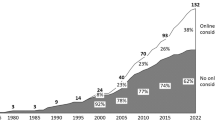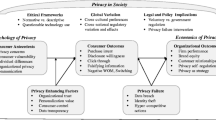Abstract
How can a business institution function as an ethical institution within a wider system if the context of the wider system is inherently unethical? If the primary goal of an institution, no matter how ethical it sets out to be, is to function successfully within a market system, how can it reconcile making a profit and keeping its ethical goals intact? While it has been argued that some ethical businesses do exist, e.g., Johnson and Johnson, the argument I would like to put forth is that no matter how ethical a business institution is, or how ethical its goals are, its capacity to act in an ethical manner is restricted by the wider system in which it must operate, the market system. Unless there is a fundamental change in the notion of the market system itself, the capacity for individual businesses to act in an ethical manner will always be restricted. My argument is divided into two parts. The first part is to show the inherent bias towards unethical outcomes that is inherent in the market system. The second part is to suggest how to reorient the general economic framework in order to make ethical institutions more possible. The question then becomes, how to define economic behavior in terms other than competition for profit.
Similar content being viewed by others
References
Allinson, R. E.: 2002, Space, Time and the Ethical Foundations (Ashgate Publishers, Aldershot, Burlington, Vermont).
Campbell, R. H. and A. S. Skinner (eds.): 1776, Adam Smith, An Inquiry into the Nature and Causes of the Wealth of Nations (Clarendon Press, Oxford).
Cannan, E. (ed.): 1937, Adam Smith, An Inquiry Into the Nature and Causes of the Wealth of Nations (Modern Library, New York).
Donaldson, T. and Patricia H. Werhane (eds.): 1996, Ethical Issues in Business, A Philosophical Approach, 5th Edition (Prentice-Hall, Upper Saddle River, New Jersey).
Hakonssen, K. (ed.): 2002, Adam Smith, The Theory of Moral Sentiments (Cambridge University Press, Cambridge).
Koslowski, P. (ed.): 1999, Contemporary Economic Ethics (Springer, Berlin).
Samuelson P. A. and W. D. Nordhaus: 1980, Economics, 12th Edition (McGraw Hill, New York).
Sen, A.: 1990, On Ethics & Economics (Blackwell Publishers, London).
Solomon, R. C.: 1992, Ethics and Excellence, Cooperation and Integrity in Business (Oxford University Press, New York and Oxford).
Werhane, P. H.: 1991, Adam Smith and His Legacy for Modern Capitalism (Oxford University Press, New York).
Rights and permissions
About this article
Cite this article
Allinson, R.E. Circles within a Circle: The Condition for the Possibility of Ethical Business Institutions Within a Market System. Journal of Business Ethics 53, 17–28 (2004). https://doi.org/10.1023/B:BUSI.0000039397.38390.32
Issue Date:
DOI: https://doi.org/10.1023/B:BUSI.0000039397.38390.32




